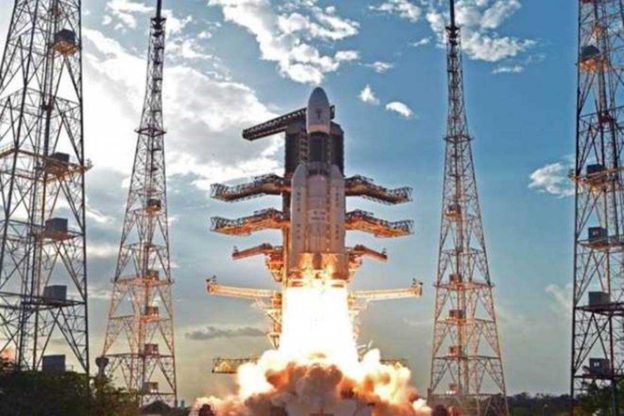“The government’s reforms in space are based on four pillars — the freedom of innovation to the private sector; the role of the government as an enabler; preparing youth for the future; and to see the space sector as a resource for the progress of the common man”
Prime Minister Narendra Modi on Monday called upon the private sector to use the technology and resources available with the Indian Space Research Organisation (ISRO) to help make India a vital part of the end-to-end supply chain in space technology.
Speaking virtually at the launch of Indian Space Association (ISpA), a grouping of space and satellite companies, Modi said the government’s reforms in space were based on four pillars. “First, the freedom of innovation to the private sector, second, the role of the government as an enabler, third, preparing youth for the future, and fourth, to see the space sector as a resource for the progress of the common man,” he said.
The prime minister also reiterated the government’s seriousness and commitment towards privatisation of state-run companies as demonstrated through Air India’s recent sale to the Tata Group.
Highlighting how India was one of a handful countries across the globe with end-to-end capabilities in the space sector, he said efficiency and affordability were the hallmarks of Indian space technology, something which would set it apart as the world moves from the “Information Age to the Space Age”.
“This efficiency’s brand value needs to be strengthened,” he said. Modi said his government would play the role of an enabler, and not of a handler, to facilitate exponential growth of the industry by transferring the technology that has matured in this area to the private sector.
“The government will also play the role of an aggregator for space assets and services so that our young innovators don’t have to spend time and energy buying equipment,” he said.
The 20th century was marked by a tendency of trying to rule space and the space sector, which divided countries of the world, Modi said. “However, now in the 21st century, India will have to ensure that space plays an important role in uniting and connecting the world.”
Underlining the significance of space technology for 1.3 billion Indians, the prime minister said it would lead to better mapping, imaging and connectivity facilities for the common people. The technology would also help improve speed from shipment to delivery for entrepreneurs, lead to better security and income for fishermen, and better forecast of natural calamities, he said.
Laying down the roadmap, Modi said the government will soon finalise the spacecom (space-based communication) and remote sensing policies and the intent was to provide the private sector a platform on which they could build multiple solutions.
He said the government would continue supporting young entrepreneurs and startups. To develop a strong startup ecosystem, a platform approach was very important, he said.
Giving an example of the UPI platform, the prime minister said it became the basis of a strong fintech network. The government would encourage similar platforms in space, geospatial fields and for use of drones in various areas, he said.
Modi emphasised on the significance of the Atma Nirbhar Bharat campaign while calling upon the private sector to tap into opportunities in developing homegrown space technology solutions. He said it wasn’t just a vision but also a well-thought, well-planned, integrated economic strategy.
“This is a strategy that will make India a global manufacturing powerhouse by enhancing the skills capabilities of India’s entrepreneurs and India’s youth,” he said. “A strategy that will make India a global centre of innovations, based on India’s technological expertise.”
This strategy will play a big role in global development, enhancing the prestige of India’s human resources and talent, he said
https://cio.economictimes.indiatimes.com/news/next-gen-technologies/pm-narendra-modi-offers-isro-technology-and-resources-for-private-players-to-take-up-space-operations/86961721





